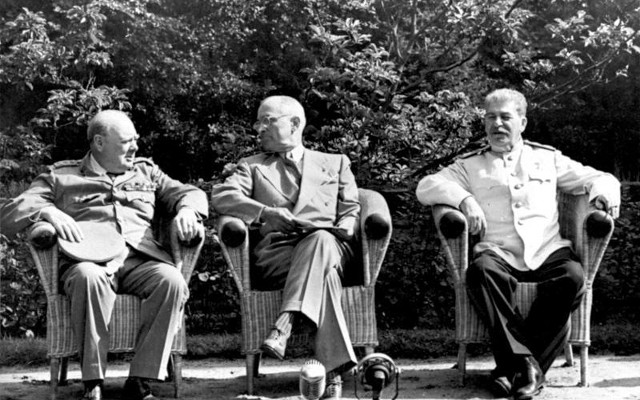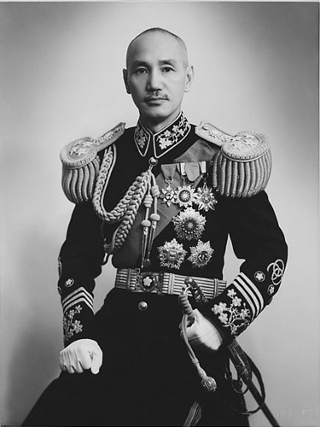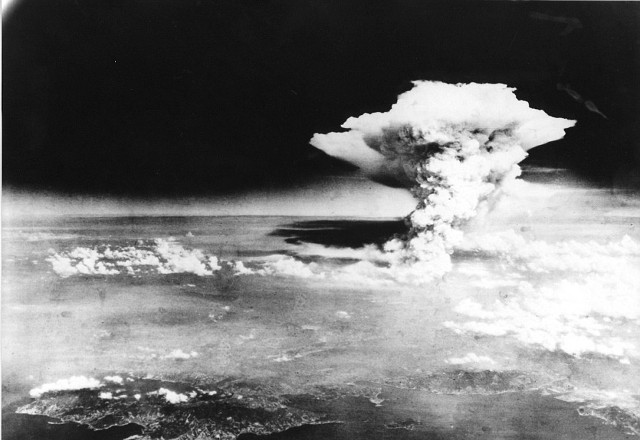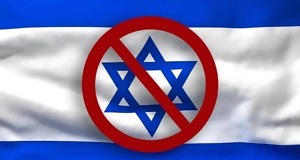HISTORIE Den 26. juli 1945 utsteder de allierte Potsdamdeklarasjonen med trusler om å «fullstendig ødelegge» Japan hvis landet ikke går med på vilkårsløs kapitulasjon. Da japanerne ikke aksepterte vilkårene besluttet de allierte å atombombe Japan.

Foto: Bundesarchiv, Bild 183-H27035 / CC-BY-SA 3.0, CC BY-SA 3.0 DE, via Wikimedia Commons
Den 17. juli – 2. august ble Potsdamkonferansen holdt, hvor de allierte lederne samlet seg for å diskutere hvordan de beseirede landene skulle administreres.
De allierte lederne besluttet på konferansen hvordan de beseirede landene skulle «demokratiseres», og for Tysklands del førte dette blant annet til at de allierte arrangerte verdenshistoriens største bokbål og at det tyske folket måtte gjennomgå en omskolering kalt «avnazifiseringsprosessen». De som ikke gjorde dette risikerte å bli fratatt matrasjoneringskortet og dermed sulte.

På tidspunktet for Potsdamkonferansen var krigen ikke riktig avsluttet ettersom Japan fortsatt ikke var beseiret. Vilkårene for Japans kapitulasjon ble diskutert på konferansen, og ble oppsummert den 26. juli 1945 i Potsdamdeklarasjonen, eller Proclamation Defining Terms for Japanese Surrender. Deklarasjonen ble undertegnet av USAs president Harry S. Truman, Storbritannias statsminister Winston Churchill og Kinas generalissimo Chiang Kai-shek.
Potsdamdeklarasjonen handlet ikke om at Japan skulle legge ned sine våpen og gå med på rettferdige kapitulasjonsvilkår, men innebar istedet vilkårsløs kapitulasjon, okkupasjon og store inngrep i den japanske levemåten. Deklarasjonen innebar at de allierte, akkurat som i Tyskland, skulle lære folket hvordan man lever «demokratisk». De allierte skulle forlate Japan først når målet hadde blitt oppnådd med en «i enighet med det japanske folkets fritt uttrykte vilje fredelig og ansvarsfull regjering».
Hvis ikke det japanske folkets «fritt uttrykte vilje» kunne oppnå de ønskede resultatene skulle de allierte fortsette å okkupere landet. Og hvis ikke den vilkårsløse kapitulasjonen ble godtatt ville alternativet være «hurtig og fullstendig ødeleggelse» av ikke bare de japanske styrkene, men også «det japanske hjemlandet». Trusselen om fullstendig ødeleggelse forekommer i punkt 3 og 13 av deklarasjonen.
Innføringen av «demokrati», utdrivelse av «uansvarlig militarisme», et «nytt styre av fred, sikkerhet og rettferdighet» samt «for all tid eliminering av makten og innflytelsen hos dem som har villedet Japans folk» ble i sin helhet oppfattet som at «vilkårsløs kapitulasjon» innebar at keiseren måtte abdisere. I praksis var det også det som skjedde. USA lot riktignok keiseren beholde sin posisjon, men uten makt og kun som et symbol for staten.
Japan, som hadde over 2 millioner stridsdyktige soldater til rådighet, kunne ikke gå med på de uakseptable kapitulasjonsvilkårene som i praksis innebar slaveri. Den japanske militærledelsen begynte istedet å forhandle om rettferdige vilkår som innebar at keiseren skulle få beholde sin plass i den japanske styremåten, hvilket de allierte ikke gikk med på. Allerede i deklarasjonen hadde de gått ut med følgende om vilkårene: «Vi kommer ikke til å avvike fra dem. Det finnes ingen alternativ. Vi kommer ikke til å la oss bli forsinket».
Istedet skulle de allierte nå vise Japan hva de egentlig mente med ordene «fullstendig ødeleggelse». USA hadde gjennomført en vellykket test av atombomben én dag før Potsdamkonferansen, og potensielle mål var allerede valg ut før deklarasjonen ble utstedt. Alt de allierte behøvde nå var en grunn til å bruke sitt nye våpen.
Den 5. august gav Harry S. Truman ordre om å atombombe Hiroshima. Atombomben ble detonert den 6. august.

Etter bombingen truet president Truman på nytt Japan:
If they do not now accept our terms, they may expect a rain of ruin from the air, the like of which has never been seen on this earth. Behind this air attack will follow sea and land forces in such numbers and power as they have not yet seen and with the fighting skill of which they are already well aware.
Da japanerne til tross for dette ikke gav seg falt atombomben over Nagasaki den 9. august. Dagen før hadde også Sovjetunionen erklært Japan krig.
Japan kapitulerte dagen etter keiser Hirohitos radiotale den 14. august, som forklarte at Japan nå må «akseptere det uakseptable og utholde det uutholdelige» og at atombombene ikke bare ville føre til Japans undergang, men også «den fullstendige utryddelsen av menneskelig sivilisasjon».
Potsdamdeklarasjonen av den 26. juli 1945
- 1. We-the President of the United States, the President of the National Government of the Republic of China, and the Prime Minister of Great Britain, representing the hundreds of millions of our countrymen, have conferred and agree that Japan shall be given an opportunity to end this war.
- 2. The prodigious land, sea and air forces of the United States, the British Empire and of China, many times reinforced by their armies and air fleets from the west, are poised to strike the final blows upon Japan. This military power is sustained and inspired by the determination of all the Allied Nations to prosecute the war against Japan until she ceases to resist.
- 3. The result of the futile and senseless German resistance to the might of the aroused free peoples of the world stands forth in awful clarity as an example to the people of Japan. The might that now converges on Japan is immeasurably greater than that which, when applied to the resisting Nazis, necessarily laid waste to the lands, the industry and the method of life of the whole German people. The full application of our military power, backed by our resolve, will mean the inevitable and complete destruction of the Japanese armed forces and just as inevitably the utter devastation of the Japanese homeland.
- 4. The time has come for Japan to decide whether she will continue to be controlled by those self-willed militaristic advisers whose unintelligent calculations have brought the Empire of Japan to the threshold of annihilation, or whether she will follow the path of reason.
- 5. Following are our terms. We will not deviate from them. There are no alternatives. We shall brook no delay.
- 6. There must be eliminated for all time the authority and influence of those who have deceived and misled the people of Japan into embarking on world conquest, for we insist that a new order of peace, security and justice will be impossible until irresponsible militarism is driven from the world.
- 7. Until such a new order is established and until there is convincing proof that Japan’s war-making power is destroyed, points in Japanese territory to be designated by the Allies shall be occupied to secure the achievement of the basic objectives we are here setting forth.
- 8. The terms of the Cairo Declaration shall be carried out and Japanese sovereignty shall be limited to the islands of Honshu, Hokkaido, Kyushu, Shikoku and such minor islands as we determine.
- 9. The Japanese military forces, after being completely disarmed, shall be permitted to return to their homes with the opportunity to lead peaceful and productive lives.
- 10. We do not intend that the Japanese shall be enslaved as a race or destroyed as a nation, but stern justice shall be meted out to all war criminals, including those who have visited cruelties upon our prisoners. The Japanese Government shall remove all obstacles to the revival and strengthening of democratic tendencies among the Japanese people. Freedom of speech, of religion, and of thought, as well as respect for the fundamental human rights shall be established.
- 11. Japan shall be permitted to maintain such industries as will sustain her economy and permit the exaction of just reparations in kind, but not those which would enable her to re-arm for war. To this end, access to, as distinguished from control of, raw materials shall be permitted. Eventual Japanese participation in world trade relations shall be permitted.
- 12. The occupying forces of the Allies shall be withdrawn from Japan as soon as these objectives have been accomplished and there has been established in accordance with the freely expressed will of the Japanese people a peacefully inclined and responsible government.
- 13. We call upon the government of Japan to proclaim now the unconditional surrender of all Japanese armed forces, and to provide proper and adequate assurances of their good faith in such action. The alternative for Japan is prompt and utter destruction.










Retningslinjer for kommentarfelet
Kommentarer er ikke redaksjonelt materiale. Man er selv ansvarlig for det man skriver i kommentarfeltet.